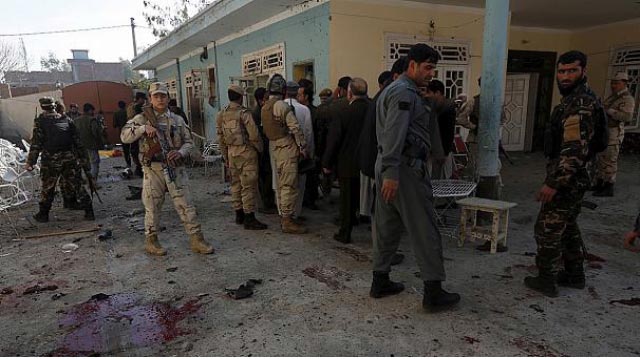Man’s natural and unalienable rights and dignity, which are stated in national laws and international instruments, are violated to a great extent. Curtailing people’s freedoms and trampling upon their fundamental rights outrage one’s conscience and fill the air with a sense of fear and disappointment. Afghans suffer not only from violence and bloodshed but also from lack of respect to the state law approved on the basis of democratic criteria following the downfall of the Taliban’s regime. Man’s natural rights to life, liberty and property, which are included in the Universal Declaration of Human Rights (UDHR), have been endorsed by Afghan administration and the state is committed to respect and protect those rights and to “form a civil society void of oppression, atrocity, discrimination as well as violence, based on rule of law, social justice, protecting integrity and human rights, and attaining peoples’ freedoms and fundamental rights,” as stated in the Constitution’s preamble.
Afghanistan’s Constitution has been approved immaculately based on both national values and international standards. Universal principles, which are rooted in humans’ natural characteristics, are appropriately reflected in our law. For instance, the principle of non-discrimination on the grounds of one’s race, sex or color, invalidating the confession obtained under duress, criminalizing physical or mental tortures, degradation of the accused/suspect, arbitrary detention and etc.
Since the accused are mostly treated as criminal in our society, observing their rights is underlined in the country’s laws, mainly in Constitution, Penal Code and Criminal Procedure Code. As a result, article 29 of the Constitution states, “Persecution of human beings shall be forbidden. No one shall be allowed to or order torture, even for discovering the truth from another individual who is under investigation, arrest, detention or has been convicted to be punished. Punishment contrary to human dignity shall be prohibited.”
Constitutionally, when the accused are detained by the police, they will have to be informed of the reasons behind their detention and entitled to appoint defending attorney forthwith and confidentiality of conversations, correspondence, and communications between the accused and their attorney shall be secure from any kind of violation. In addition, forced confession is not valid or allowed at any cost. Mental or spiritual tortures are also banned in law. Since Afghanistan has committed to observe the United Nation’s Charter and UDHR, mental or spiritual tortures are also regarded violation of human rights in international instruments which are known as: solitary confinement, keeping in solitary cell without being allowed to have access to food, water and toilet, threatening to throw from window, using foul language, immersing their heads in smelly substance and making them watch the act of torture.
After all, ambiguity in the statements of law is never supposed to be interpreted against the accused and the district attorney/prosecutor will have to consider both the accusing and exonerating documents equally.
As mentioned above, arbitrary detention is against the law and a court can order the detention of the accused in six cases: (1) In case of the existence of criminal documents against the accused. (2) In case of committing crime evidently. (3) When the identity of the accused/suspects is unknown. (4) When there is fear of escape or concealment. (5) When there is fear of sabotage or change of criminal documents. (6) When the accused/suspects do not have a permanent residence in district where crime is committed.
Moreover, the court can release the accused on bail based on its own decision or on the suggestions made by the accused or their attorney. The president of the court can determine the amount of bail, for releasing the accused/suspects temporarily, in accordance with the level of accusation or damage inflicted on a person – as mentioned in article 105 and 106 of Criminal Procedure Code. It is worth saying that detaining the accused without a legal order of an authoritative court is not allowed in the legislative system.
It goes without saying that court, which is a part of legislative system, is an independent entity and no one, including the president, can put pressure on it about its decisions. The division of powers – i.e. legislative, executive and judiciary powers – is recognized only in democratic administrations, including Afghanistan. All the powers are independent and have to work in a parallel manner but cannot interfere in the decisions of one another.
Home » Opinion » Human Rights Violation
Human Rights Violation
| Hujjatullah Zia

